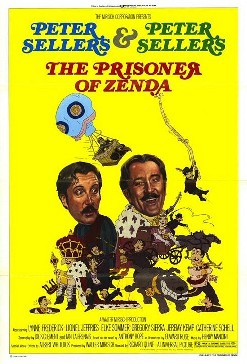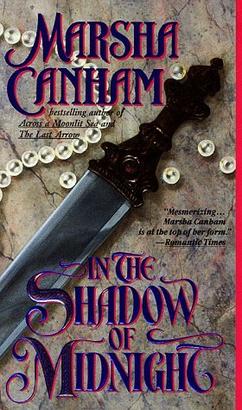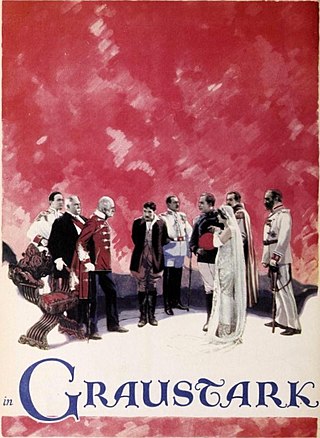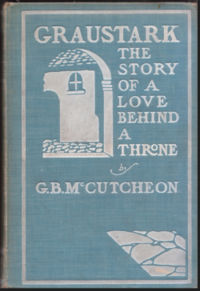Description
Graustark is described as a mountainous country with an area of approximately 800 square miles (2,100 km2) - for reference, the unclaimed territory of Bir Tawil has an area of 795 square miles. There is at least one reference in the books that fixes its location as somewhere in the Carpathian Mountains near Romania. On the other hand, in Graustark it is said to be threatened with reduction to being only 25 miles wide by 150 miles long (3750 square miles) - for reference, the land area of Lebanon is equivalent to 3,950 square miles - and in Truxton King is said to provide a shorter rail route to Russian territories in or near Afghanistan. Graustark's capital city, Edelweiss, is accessible by train from Vienna. The mountain town of Ganlook is near the border with Axphain, Graustark's traditional enemy.
Graustark is ruled as a principality and its unit of currency is called the gavvo, worth $1.40 at the time of the novel Truxton King. Graustarkian is the native language of the people, although American English is universally spoken among the educated classes and is the everyday language of the royal family and court.
History of Graustark
During the 1870s, Graustark's ruler, Prince Ganlook of Graustark, was killed in a war with neighboring Axphain. As part of the ensuing peace treaty, Graustark agreed to pay a large indemnity to Axphain, to be due, with interest, in fifteen years.
Graustark found itself without the resources to pay the indemnity when it was due, and in desperation, Princess Yetive, Ganlook's daughter and successor, was on the verge of contracting a state marriage to Prince Lorenz of Axphain in exchange for more favorable payment terms. But before the marriage could take place, Lorenz was murdered. The princess's true love, the American Grenfall Lorry, whom she had met while travelling in the United States, appeared to be the murderer. Lorenz's father insisted on the murderer's punishment, but the execution was prevented by the revelation of the true murderer: the villainous Prince Gabriel, ruler of Dawsbergen, who was another of Yetive's suitors. With Lorenz dead and Gabriel imprisoned, Yetive instead married her true love.
During Gabriel's imprisonment, Dawsbergen was ruled by his younger half-brother, Prince Dantan, a popular figure among his own people and a staunch friend of Graustark as well. But after two years, Gabriel escaped from prison and, supported by the Dawsbergen army, returned to the throne. Dantan was forced to go into hiding in disguise in Graustark. For a time it appeared that Graustark might be forced into war with both Dawsbergen and Axphain, but this was averted when Gabriel was recaptured. Meanwhile, the disguised Prince Dantan had fallen in love with Beverly Calhoun, an American guest of the Lorrys; they were married upon his restoration to the throne of Dawsbergen.
Yetive and her husband were tragically killed in a railway accident near Brussels, leaving their young son Prince Robin as ruler of Graustark. While still a child, Robin was the target of an assassination plot by anarchists acting under the direction of the exiled Count Marlanx, whose ultimate goal was to establish himself as sole dictator of Graustark. But the assassination attempt was foiled by the intervention of the American Truxton King, and Marlanx was killed in the ensuing attack on the royal palace.
Graustark was still in financial difficulties by the time Prince Robin reached adulthood. William W. Blithers, a very rich and very vulgar American, offered to finance the country in the hopes of arranging a marriage between Robin and his own daughter. The two principals, however, had very different ideas of their own about marriage. Robin eventually married Bevra, the Crown Princess of Dawsbergen, daughter of Dantan and Beverly.
Graustark's debts eventually ended up being held by Russia. In exchange for entering World War I as Russia's ally, Graustark negotiated cancellation of this debt. Later, with Russia out of the war, Graustark also negotiated a separate peace. There followed a period of prosperity in the country.
Axphain, however, was taken over by communists after the war, and was in a state of much distress and unrest. Its ruler, Prince Hedrik (brother of Lorenz), and his elder son were murdered in the communist revolution, leaving the younger son Prince Hubert in exile in Graustark and an illegitimate son Gregory who lived with his mother in Italy. Hubert was hoping to marry Princess Virginia of Dawsbergen, Bevra's younger sister, but she had previously contracted a marriage of convenience to Pendennis Yorke, an American journalist, and much to the surprise of everyone it became a genuine love match. The communist regime in Axphain was defeated after an unsuccessful attempt to invade Graustark, and the monarchy in that country was restored with Gregory on the throne rather than the unpopular Hubert, who was himself assassinated in the aftermath.
In the fantasy novel Three Hearts and Three Lions (1961) by Poul Anderson, the hero Holger Carlsen gives his hastily constructed alias as 'Sir Rupert of Graustark.'

The Prisoner of Zenda is an 1894 adventure novel by Anthony Hope, in which the King of Ruritania is drugged on the eve of his coronation and thus is unable to attend the ceremony. Political forces within the realm are such that, in order for the king to retain the crown, his coronation must proceed. Fortuitously, an English gentleman on holiday in Ruritania who resembles the monarch is persuaded to act as his political decoy in an effort to save the unstable political situation of the interregnum.

Rupert of Hentzau is a sequel by Anthony Hope to The Prisoner of Zenda, written in 1895 but not published in book form until 1898.

George Barr McCutcheon was an American popular novelist and playwright. His best known works include a series of novels set in Graustark, a fictional East European country, and the novel Brewster's Millions, which was adapted into a play and several films.

Beverly of Graustark is a 1926 American silent romantic comedy film directed by Sidney Franklin and starring Marion Davies, Antonio Moreno, and Creighton Hale. The film's screenplay was written by Agnes Christine Johnston based on the novel by George Barr McCutcheon, and set in the fictional land of Graustark. The film features a final sequence in Technicolor. It was the first film by Sidney Franklin for MGM.

This is a list of bestselling novels in the United States in the 1900s, as determined by The Bookman, a New York–based literary journal. The list features the most popular novels of each year from 1900 through 1909.

Ruritanian romance is a genre of literature, film and theatre comprising novels, stories, plays and films set in a fictional country, usually in Central or Eastern Europe, such as the "Ruritania" that gave the genre its name.

The Prisoner of Zenda is a 1979 American comedy film directed by Richard Quine that stars Peter Sellers, Lynne Frederick, Lionel Jeffries, Elke Sommer, Gregory Sierra, Jeremy Kemp, and Catherine Schell. It is adapted from the 1894 adventure novel by Anthony Hope. The novel tells the story of a man who has to impersonate a king, whom he closely resembles, when the king is abducted by enemies on the eve of his coronation.

The Prisoner of Zenda is a 1937 American black-and-white adventure film based on Anthony Hope's 1894 novel and the 1896 play. A lookalike has to step in when his royal distant relative is kidnapped to prevent his coronation. This version is widely considered the best of the many film adaptations of the novel and play.

Franklin Bryant Washburn III was an American actor who appeared in more than 370 films between 1911 and 1947. Washburn's parents were Franklin Bryant Washburn II and Metha Catherine Johnson Washburn. He attended Lake View High School in Chicago.

The Mad King is a Ruritanian romance by American writer Edgar Rice Burroughs, originally published in two parts as "The Mad King" and "Barney Custer of Beatrice" in All-Story Weekly, in 1914 and 1915, respectively. These were combined for the book edition, first published in hardcover by A. C. McClurg in 1926.

Prince Otto: A Romance is a novel written by Robert Louis Stevenson, first published in 1885.

Prisoner of Zenda is a 1988 Australian animated adventure film from Burbank Films Australia. It was originally released in 1988. The film is based on Anthony Hope's classic 1894 English novel, The Prisoner of Zenda, and was adapted by Leonard Lee. It was produced by Roz Phillips and featured original music by John Stuart. The copyright in this film is now owned by Pulse Distribution and Entertainment and administered by digital rights management firm NuTech Digital. In the UK, the distributor was Waterfall Home Entertainment.
Pandukabhaya was a king of Upatissa Nuwara and the first monarch of the Anuradhapura Kingdom and 6th over all of the island of Sri Lanka since the arrival of the Vijaya; he reigned from 437 BC to 367 BC. According to many historians and philosophers, he is the first truly Sri Lankan king since the Vijayan migration, and also the king who ended the conflict between the Sinha clan and the local clans, reorganising the population.

Graustark is a 1915 American silent adventure drama film produced by the Essanay Studios. It is based on the novel Graustark by George Barr McCutcheon. The film starred romantic team Francis X. Bushman and Beverly Bayne and proved one of their most popular vehicles. Fred E. Wright directed the film.

In the Shadow of Midnight is a 1994 historical novel by Canadian author Marsha Canham, the second instalment of her "Medieval" trilogy inspired by the Robin Hood legend set in 13th-century England. The story centres on the rescue of Princess Eleanor of Brittany, the rightful heiress to the English throne, who is held captive by her uncle King John. The novel was published by Dell Publishing in 1994 as a sequel to Canham's 1991 story, Through a Dark Mist.

Truxton King is a lost 1923 American silent drama film directed by Jerome Storm. The film stars John Gilbert while he was a player for Fox Film Corporation and is based upon the novel Graustark by George Barr McCutcheon.

La Reine Margot is a historical novel written in 1845 by Alexandre Dumas, père. Although it is based on real characters and events, certain aspects of La Reine Margot may be inconsistent with the historical record; historians have attributed that to artistic licence and the fact that Dumas might have been influenced by propaganda against certain historical figures, notably Catherine. Written in French, it was almost immediately translated into English, first anonymously and soon afterward publicly by David Bogue as Marguerite de Valois: An Historical Romance.

Graustark is a 1925 American silent romantic adventure film produced by Dimitri Buchowetzki for Norma Talmadge Productions and distributed by First National. It is based on the novel Graustark by George Barr McCutcheon. It was directed by Dimitri Buchowetzki with Norma Talmadge as the leading woman.

The Prince of Graustark is a 1916 American silent romantic drama film directed by Fred E. Wright and starring Bryant Washburn, Marguerite Clayton and Sidney Ainsworth. Produced by the Chicago-based Essanay Pictures, it is based on the 1914 novel of the same title by George Barr McCutcheon. Future star Colleen Moore made her screen debut in an uncredited role as a maid.


















